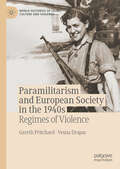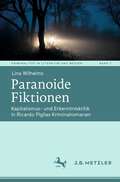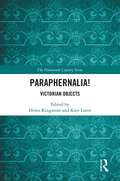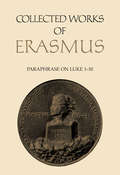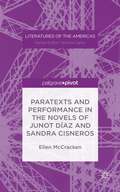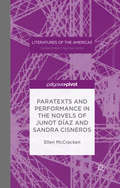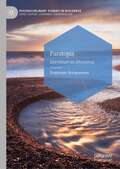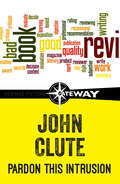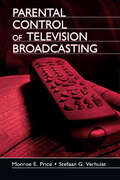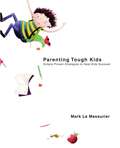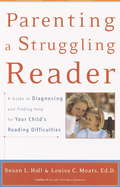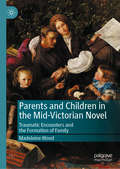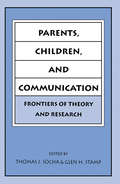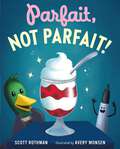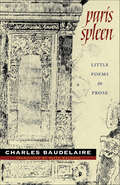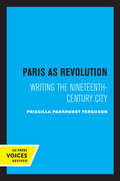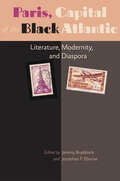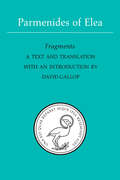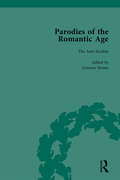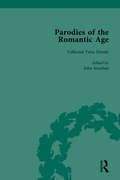- Table View
- List View
Paramilitarism and European Society in the 1940s: Regimes of Violence (World Histories of Crime, Culture and Violence)
by Gareth Pritchard Vesna DrapacThis book explores the social roots, character, and consequences of paramilitary violence in Europe in the 1940s. Paramilitarism had an impact on the lives of millions of Europeans, yet knowledge about this important topic is partial and fragmented. The general perception of European paramilitary violence in the 1940s derives almost entirely from the resistance/collaboration paradigm. This dichotomous analytical framework makes a clear distinction between politically motivated violence and social violence, such as sexual, criminal, and structural violence. By contrast, in this book, Gareth Pritchard and Vesna Drapac recognise the mutual dependence of all kinds of violence. Their interpretative model, the Regimes of Violence paradigm, which takes account of the changing relationship between state, society, and organised violence, allows us to observe paramilitarism in the round. The Regimes of Violence framework reveals the interconnectedness of paramilitarism with other forms of violence during this period of unprecedented brutality. Today, paramilitary violence is a global phenomenon. It has resulted in the undermining of the rule of law and the erosion of civil society in many different countries on different continents, while at the same time traumatising the countless numbers of innocent people who are caught in its crossfire. With their compelling and timely study, Pritchard and Drapac provide an historical context and present a novel approach for understanding why paramilitarism shows no sign of abating.
Paranoide Fiktionen: Kapitalismus- und Erkenntniskritik in Ricardo Piglias Kriminalromanen (Kriminalität in Literatur und Medien #7)
by Lina WilhelmsRicardo Piglias Kriminalromane haben das Genre kritisch beleuchtet und erneuert. Die Untersuchung kapitalismus- und erkenntniskritischer Perspektiven in Plata quemada, Blanco nocturno und El camino de Ida verbindet literaturtheoretische mit -historischen Reflexionen. Ausgehend von der These, dass die bürgerlich-kapitalistische Gesellschaft sowie Diskurse um Aufklärung und Positivismus zentrale Entstehungsbedingungen des Kriminalromans sind, wird nach den Möglichkeiten und Grenzen ihrer Kritik sowie einer dem Genre inhärenten Dialektik gefragt. Mithilfe marxistischer und poststrukturalistischer Ansätze werden Piglias Romane vor dem Hintergrund des argentinischen Kontexts als postmoderne littérature engagée analysiert.Die Arbeit wurde 2023 mit dem Elise Richter-Preis des Deutschen Romanistenverbands ausgezeichnet.
Paraphernalia! Victorian Objects (The Nineteenth Century Series)
by Kate Lister Helen KingstoneThe Victorian era is famous for the collecting, hording, and displaying of things; for the mass production and consumption of things; for the invention, distribution and sale of things; for those who had things, and those who did not. For many people, the Victorian period is intrinsically associated with paraphernalia. This collection of essays explores the Victorians through their materiality, and asks how objects were part of being Victorian; which objects defined them, represented them, were uniquely theirs; and how reading the Victorians, through their possessions, can deepen our understanding of Victorian culture. Miscellaneous and often auxiliary, paraphernalia becomes the ‘disjecta’ of everyday life, deemed neither valuable enough for museums nor symbolic enough for purely literary study. This interdisciplinary collection looks at the historical, cultural and literary debris that makes up the background of Victorian life: Valentine’s cards, fish tanks, sugar plums, china ornaments, hair ribbons, dresses and more. Contributors also, however, consider how we use Victorian objects to construct the Victorian today; museum spaces, the relation of Victorian text to object, and our reading – or gazing at – Victorian advertisements out of context on searchable online databases. Responding to thing theory and modern scholarship on Victorian material culture, this book addresses five key concerns of Victorian materiality: collecting; defining class in the home; objects becoming things; objects to texts; objects in circulation through print culture.
Paraphrase on Luke 1 to 10: Collected Works of Erasmus - Volume 47
by Desiderius Erasmus Jane E. PhillipsErasmus yearned to make the New Testament an effective instrument of reform in society, church, and everyday life, and to this end he composed the Paraphrases, in which the words of Holy Scripture provide the core of a text that was vastly expanded to embrace the reforming "philosophy of Christ." Paraphrase on Luke 1-10 contains the first half of Erasmus's Paraphrase on Luke - the second half of which appeared in this series in 2003 - and completes the set of translations of the Paraphrases into English.In his Paraphrase on Luke, Erasmus expands on the original Gospel of Luke in the voice of its original author. The narrative is supplemented by Erasmus' explications of the text's moral, theological, and allegorical meanings and its psychological, historical, and geographical context. In addition to a fluid and idiomatic translation, Paraphrase on Luke 1-10 includes extensive annotations for the general or scholarly reader, making this a valuable and accessible resource for the study of both Erasmus and the New Testament.
Parascientific Revolutions: The Science and Culture of the Paranormal (Proximities)
by Derek LeeUnraveling the hidden influence of the paranormal on science, literature, and belief Telepathy, clairvoyance, precognition, and telekinesis: these attributes of the paranormal mind are widely dismissed as nonsense, but what can an exploration of such pseudoscientific phenomena tell us about accepted scientific and cultural thought? In Parascientific Revolutions, Derek Lee traces the evolution of psi epistemologies across the twentieth and twenty-first centuries to uncover how these ideas have migrated into scientific fields such as quantum physics and neurology, as well as diverse literary genres including science fiction, ethnic literature, and even government training manuals. Lee introduces the groundbreaking concept of &“parascience,&” a dynamic cultural space where ideas rejected by the scientific establishment blend with alternative strains of literary, mythic, and philosophical thought to regenerate and return to mainstream discourse. From early modernist works by James Joyce to postwar speculative fiction by Philip K. Dick to ethnofuturist narratives by Ruth Ozeki, Parascientific Revolutions demonstrates how cultural and intellectual currents reshape paranormal ideas over time. Examining psychic surveillance programs like Project Stargate and bizarre particles of extrasensory perception such as the psitron, Lee illustrates the ways paranormal concepts persist and evolve to influence culture. Presenting pseudoscience as an inevitable by-product of the scientific process, Parascientific Revolutions offers fresh insight into how the paranormal mind continually challenges our understanding of knowledge and belief. It invites readers to reconsider the boundaries between science and the unknown, revealing a world where speculative thought and empirical investigation are deeply intertwined. Retail e-book files for this title are screen-reader friendly with images accompanied by short alt text and/or extended descriptions.
Paratexts and Performance in the Novels of Junot Díaz and Sandra Cisneros (Literatures Of The Americas)
by Ellen McCrackenParatexts and Performance in the Novels of Junot Díaz and Sandra Cisneros.
Paratexts and Performance in the Novels of Junot Díaz and Sandra Cisneros (Literatures of the Americas)
by Ellen McCrackenPart of a new phase of post-1960s U.S. Latino literature, The Brief Wondrous Life of Oscar Wao by Junot Díaz and Caramelo by Sandra Cisneros both engage in unique networks of paratexts that center on the performance of latinidad. Here, Ellen McCracken re-envisions Gérard Genette's paratexts for the present day, arguing that the Internet increases the range, authorship, and reach of the paratextual portals and that they constitute a key element of the creative process of Latino literary production in 21st century America. This smart and useful book examines how both novelists interact with the interplay of populist and hegemonic multiculturalism and allows new points of entry into these novels.
Paratopia: Literature as Discourse (Postdisciplinary Studies in Discourse)
by Dominique MaingueneauThis book presents Maingueneau’s notion of paratopia and its application to literary discourse. Unlike most discourse analysts, who pay little attention to literature, the author argues that a discourse analytical perspective allows us to challenge the usual separation between textual and contextual approaches to works. Considered as an impossible belonging, paratopia is a condition of possibility of literature, of the subjects who occupy a writer's position and of the use they make of language. To find their place as creators, writers must elaborate their own paratopia, they must give it shape and meaning. Their works must both construct a certain world and, through paratopic shifters, reflect and legitimise the conditions of their own appearance. Paratopia is an invariant of literature, but it takes different forms throughout history: writers draw on their paratopic potential to appropriate the resources made available to them by literary discourse in their own time. Today, the development of digital technologies and research on gender prompts us to take a different look at traditional forms of paratopia. The corpus includes canonical and recent texts, mainly from Western literature. It will be of interest to students and scholars in literary studies, discourse studies (discourse theory and discourse analysis), and sociology of culture.
Pardon This Intrusion
by John ClutePardon This Intrusion gathers together 47 pieces by John Clute, some written as long ago as 1985, though most are recent. The addresses and essays in Part One, "Fantastika in the World Storm", all written in the twenty-first century, reflect upon the dynamic relationship between fantastika - an umbrella term Clute uses to describe science fiction, horror and fantasy - and the world we live in now. Of these pieces, "Next", a contemporary response to 9/11, has not been revised; everything else in Part One has been reworked, sometimes extensively. Parts Two, Three and Four include essays and author studies and introductions to particular works; as they are mostly recent, Clute has felt free to rework them where necessary. The few early pieces - including "Lunch with AJ and the WOMBATS", a response to the Scientology scandal at the Brighton WorldCon in 1987 - are unchanged.
Pardon This Intrusion
by John ClutePardon This Intrusion gathers together 47 pieces by John Clute, some written as long ago as 1985, though most are recent. The addresses and essays in Part One, "Fantastika in the World Storm", all written in the twenty-first century, reflect upon the dynamic relationship between fantastika - an umbrella term Clute uses to describe science fiction, horror and fantasy - and the world we live in now. Of these pieces, "Next", a contemporary response to 9/11, has not been revised; everything else in Part One has been reworked, sometimes extensively. Parts Two, Three and Four include essays and author studies and introductions to particular works; as they are mostly recent, Clute has felt free to rework them where necessary. The few early pieces - including "Lunch with AJ and the WOMBATS", a response to the Scientology scandal at the Brighton WorldCon in 1987 - are unchanged.
Parental Control of Television Broadcasting (Routledge Communication Series)
by Monroe E. Price Stefaan VerhulstThis project, originally developed for the European Community, examines parental roles in controlling television programs watched by children in Europe. The structure of the study includes: *an analysis of the technical devices available to assist in parental control of television broadcasting services, including descriptions of devices, their cost, availability, and the infrastructure needed to introduce them; *a corresponding analysis of potential ratings or labeling systems to work in conjunction with or in the place of technical devices, enabling a comparative analysis of rating systems used in film, video, and online services; and *an overview and assessment of the educational and awareness measures in the field of protection of minors and harmful content, providing the data for the review of available considerations in this field of viewer literacy. In addition to these main strands of analysis, the study provides for background information and analysis in the following areas: *an overview of the main media theories focusing on the effect and impact of specific types of content on children and their behavior; *an assessment of the economic impact and social efficacy of different protective measures; and *a comparison of the regulatory contexts and rating systems for film, video, television, and online services concerning the protection of minors from harmful content. This volume is intended for scholars and students in comparative media studies, media policy, and regulation.
Parentheticals in Spoken English
by Nicole DehéTaking both an empirical and a theoretical view of the prosodic phrasing of parentheticals in English, this book reviews the syntactic and prosodic literature on parentheticals along with relevant theoretical work at the syntax-prosody interface. It offers a detailed prosodic analysis of six types of parentheticals - full parenthetical clauses, non-restrictive relative clauses, nominal appositions, comment clauses, reporting verbs, and question tags, all taken from the spoken part of the British Component of the International Corpus of English. To date, the common assumption is that by default, parentheticals are prosodically phrased separately, an assumption which, as this study shows, is not always in line with the predictions made by current prosodic theory. The present study provides new empirical evidence for the prosodic phrasing of parentheticals in spontaneous and semi-spontaneous spoken English, and offers new implications for a theory of linguistic interfaces.
Parenting Tough Kids: Simple Proven Strategies to Help Kids Succeed
by Mark Le MessurierParenting Tough Kids delivers simple, proven strategies to improve the behavior, organization, learning, and emotional well-being of all children.Parents will find case studies and practical ideas to help youngsters improve memory and organization, complete homework and chores more easily, deal with school bullies, build emotional resilience, and create healthy friendships.
Parenting a Struggling Reader
by Susan L. Hall Louisa C. MoatsThe first completely comprehensive, practical guide for recognizing, diagnosing, and overcoming any childhood reading difficulty. According to the National Institute of Health, ten million of our nation's children (approximately 17 percent) have trouble learning to read. While headlines warn about the nation's reading crisis, Susan Hall (whose son was diagnosed with dyslexia) and Louisa Moats have become crusaders for action. The result of their years of research and personal experience,Parenting a Struggling Readerprovides a revolutionary road map for any parent facing this challenging problem. Acknowledging that parents often lose valuable years by waiting for their school systems to test for a child's reading disability, Hall and Moats offer a detailed, realistic program for getting parents actively involved in their children's reading lives. With a four-step plan for identifying and resolving deficiencies, as well as advice for those whose kids received weak instruction during the crucial early years, this is a landmark publication that promises unprecedented hope for the next generation of Information Age citizens. From the Trade Paperback edition.
Parents and Children in the Mid-Victorian Novel: Traumatic Encounters and the Formation of Family
by Madeleine WoodThis book produces an original argument about the emergence of ‘trauma’ in the nineteenth-century through new readings of Dickens, Emily and Charlotte Bronte, Collins, Gaskell and Elliot. Madeleine Wood argues that the mid-Victorian novels present their protagonists in a state of damage, provoked and defined by the conditions of the mid-century family: the cross-generational relationship is presented as formative and traumatising. By presenting family relationships as decisive for our psychological state as well as our social identity, the Victorian authors pushed beyond the contemporary scientific models available to them. Madeleine Wood analyses the literary and historical conditions of the mid-century period that led to this new literary emphasis, and which paved the way for the emergence of psychoanalysis in Vienna at the fin de siècle. Analysing a series of theoretical texts, Madeleine Wood shows that psychoanalysis shares the mid-Victorian concern with the unequal relationship between adult and child, focusing her reading through Freud’s early writings and Jean Laplanche’s ‘general theory of seduction’.
Parents, Children, and Communication: Frontiers of Theory and Research (Routledge Communication Series)
by Thomas J. Socha Glen H. StampThis is the first edited volume in the communication field to examine parent-child interaction. It creates a framework for future research in this growing area -- family communication, and more specifically, parent-child communication -- and also suggests new areas of communication research among parents and children -- cultural, work-related, taboo topics, family sex discussions, conflict, and abuse. Chapter authors provide thorough coverage of theoretical approaches, new methods, and emerging contexts including lesbian/gay parent-child relationships. In so doing, they bring a communication perspective to enduring problems of discipline, adolescent conflict, and physical child abuse. The text highlights various methodological approaches -- both quantitative and qualitative -- including conversation analysis, grounded theory, participant-observation, and phenomenological interviewing of children. It also introduces and surveys various theoretical approaches -- general systems, developmental, cultural, and intergenerational transmission.
Parfait, Not Parfait!
by Scott RothmanA minimally worded, highly entertaining, and uniquely offbeat picture book that takes readers on a surprising wordplay journey that sort of makes sense but will totally make you laugh.This must-read book is an innovative and deceptively simple journey of words that rhyme (or don't) with "parfait." Each page turn brings on the laughs as the clever story bounces from an uneaten parfait to seemingly random characters, including a duck, a toupée-wearing Shar-pei, horses playing "Pin-the-Tail-on-the-Donkay", and even. . . Abraham Lincoln. Throughout, bestselling artist Avery Monsen (All My Friends Are Dead) packs fun seek-and-finds, giving readers a chance to spot everything that rhymes with "parfait."Irreverent and wholly original, Parfait, Not Parfait is a book full of irresistible layers, each one more satisfying than the last.
Paris Spleen: Little Poems in Prose (Wesleyan Poetry Series)
by Charles BaudelaireBetween 1855 and his death in 1867, Charles Baudelaire inaugurated a new—and in his own words "dangerous"—hybrid form in a series of prose poems known as Paris Spleen. Important and provocative, these fifty poems take the reader on a tour of 1850s Paris, through gleaming cafes and filthy side streets, revealing a metropolis on the eve of great change. In its deliberate fragmentation and merging of the lyrical with the sardonic, Le Spleen de Paris may be regarded as one of the earliest and most successful examples of a specifically urban writing, the textual equivalent of the city scenes of the Impressionists. In this compelling new translation, Keith Waldrop delivers the companion to his innovative translation of The Flowers of Evil. Here, Waldrop's perfectly modulated mix releases the music, intensity, and dissonance in Baudelaire's prose. The result is a powerful new re-imagining that is closer to Baudelaire's own poetry than any previous English translation.
Paris as Revolution: Writing the Nineteenth-Century City
by Priscilla Parkhurst FergusonIn nineteenth-century Paris, passionate involvement with revolution turned the city into an engrossing object of cultural speculation. For writers caught between an explosive past and a bewildering future, revolution offered a virtuoso metaphor by which the city could be known and a vital principle through which it could be portrayed. In this engaging book, Priscilla Ferguson locates the originality and modernity of nineteenth-century French literature in the intersection of the city with revolution. A cultural geography, Paris as Revolution "reads" the nineteenth-century city not in literary works alone but across a broad spectrum of urban icons and narratives. Ferguson moves easily between literary and cultural history and between semiotic and sociological analysis to underscore the movement and change that fueled the powerful narratives defining the century, the city, and their literature. In her understanding and reconstruction of the guidebooks of Mercier, Hugo, Vallès, and others, alongside the novels of Flaubert, Hugo, Vallès, and Zola, Ferguson reveals that these works are themselves revolutionary performances, ones that challenged the modernizing city even as they transcribed its emergence. This title is part of UC Press's Voices Revived program, which commemorates University of California Press’s mission to seek out and cultivate the brightest minds and give them voice, reach, and impact. Drawing on a backlist dating to 1893, Voices Revived makes high-quality, peer-reviewed scholarship accessible once again using print-on-demand technology. This title was originally published in 1994.
Paris, Capital of the Black Atlantic: Literature, Modernity, and Diaspora (A <I>Modern Fiction Studies</I> Book)
by Jonathan P. Eburne Jeremy BraddockHow black writers’ travel to Paris contributed to the transatlantic circulation of art and ideas.Paris has always fascinated and welcomed writers. Throughout the twentieth and into the twenty-first century, writers of American, Caribbean, and African descent were no exception. Paris, Capital of the Black Atlantic considers the travels made to Paris—whether literally or imaginatively—by black writers. These collected essays explore the transatlantic circulation of ideas, texts, and objects to which such travels to Paris contributed. Editors Jeremy Braddock and Jonathan P. Eburne expand upon an acclaimed special issue of the journal Modern Fiction Studies with four new essays and a revised introduction. Beginning with W. E. B. Du Bois’s trip to Paris in 1900 and ending with the contemporary state of diasporic letters in the French capital, this collection embraces theoretical close readings, materialist intellectual studies of networks, comparative essays, and writings at the intersection of literary and visual studies. Paris, Capital of the Black Atlantic is unique both in its focus on literary fiction as a formal and sociological category and in the range of examples it brings to bear on the question of Paris as an imaginary capital of diasporic consciousness.
Paris, Capital of the Black Atlantic: Literature, Modernity, and Diaspora (A Modern Fiction Studies Book)
by Jonathan P. Eburne Jeremy Braddock“How African-American artists and intellectuals sought greater liberty in Paris while also questioning the extent of the freedoms they so publicly praised.” —American Literary HistoryParis has always fascinated and welcomed writers. Throughout the twentieth and into the twenty-first century, writers of American, Caribbean, and African descent were no exception. Paris, Capital of the Black Atlantic considers the travels made to Paris—whether literally or imaginatively—by black writers. These collected essays explore the transatlantic circulation of ideas, texts, and objects to which such travels to Paris contributed.Editors Jeremy Braddock and Jonathan P. Eburne expand upon an acclaimed special issue of the journal Modern Fiction Studies with four new essays and a revised introduction. Beginning with W. E. B. Du Bois’s trip to Paris in 1900and ending with the contemporary state of diasporic letters in the French capital, this collection embraces theoretical close readings, materialist intellectual studies of networks, comparative essays, and writings at the intersection of literary and visual studies. Paris, Capital of the Black Atlantic is unique both in its focus on literary fiction as a formal and sociological category and in the range of examples it brings to bear on the question of Paris as an imaginary capital of diasporic consciousness.“Demonstrate[s] how Black writers shaped history and contributed to conflicting notions of modernity hosted in Paris . . . The wide range of writers and scholars from American and Francophone studies makes this collection very original and an exciting adventure in concepts, movements, and ideologies that could be acceptable to non-specialists as well.” —American Studies
Parmenides of Elea
by David GallopDavid Gallop provides a Greek text and a new facing-page translation of the extant fragments of Parmenides' philosophical poem. He also includes the first complete translation into English of the contexts in which the fragments have been transmitted to us, and of the ancient testimonia regarding Parmenides' life and thought. All of the fragments have been translated in full and are arranged in the order that has become canonical since the publication of the fifth edition of Diels-Rranz's Die Fragmente der Vorsokratiker. Alternative renderings are provided for passages whose meaning is disputed or where major questions of interpretation hinge upon the text or translation adopted. In an extended introductory essay, Gallop offers guidance on the background of the poem, and a continuous exposition of it, together with a critical discussion of its basic argument. The volume also includes an extensive bibliography, a glossary of key terms in the poem, and a section on sources and authorities.
Parodies of the Romantic Age Vol 1: Poetry Of The Anti-jacobin And Other Parodic Writings
by John Strachan Graeme StonesThis volume collects together a wealth of material ranging from verse parodies originally published in pamphlet form, to longer works such as P.G. Patmore's parodies of the works of Byron, Lamb and Hazlitt.
Parodies of the Romantic Age Vol 2: Poetry Of The Anti-jacobin And Other Parodic Writings
by John StrachanThis volume collects together a wealth of material ranging from verse parodies originally published in pamphlet form, to longer works such as P.G. Patmore's parodies of the works of Byron, Lamb and Hazlitt.
